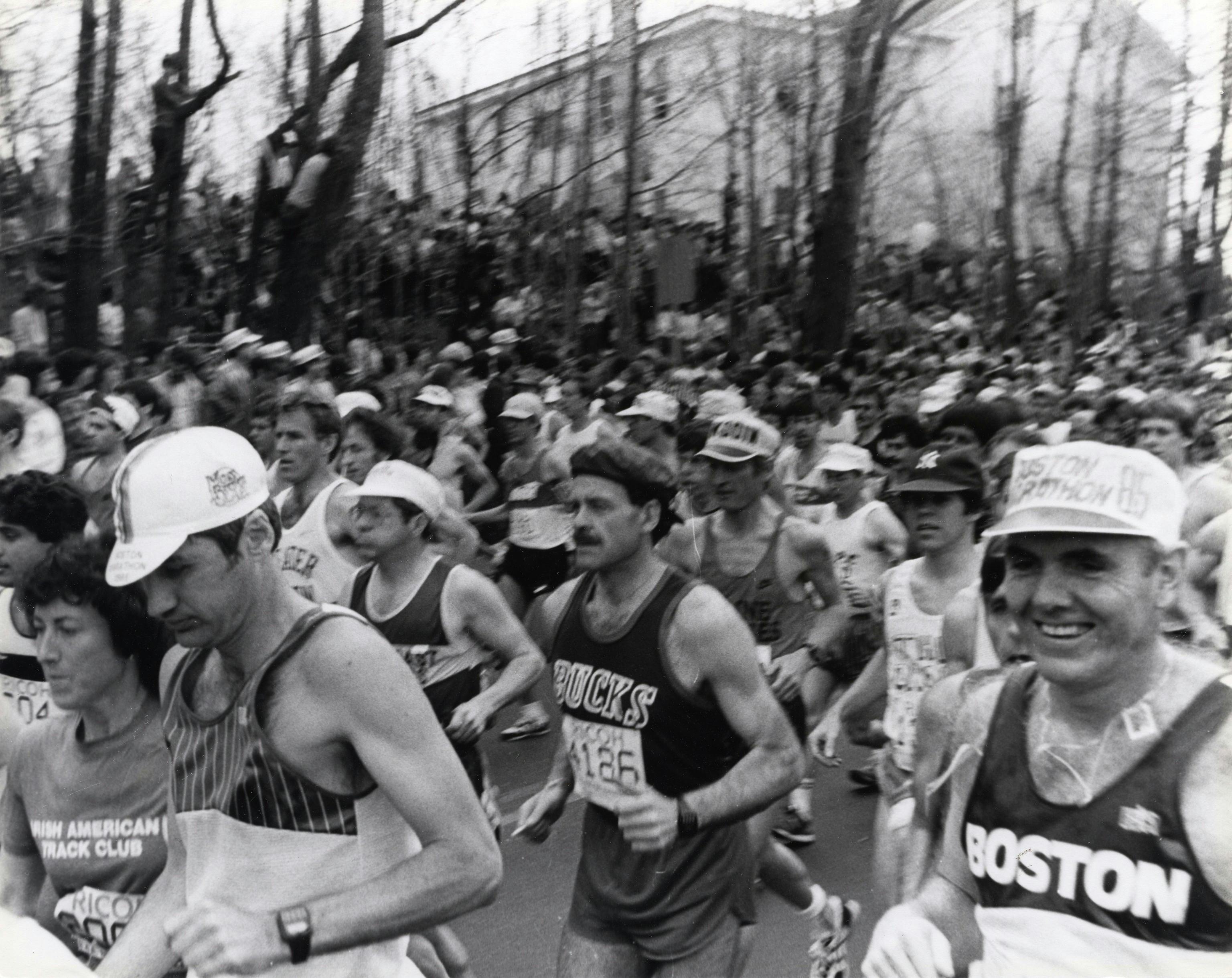
Run Your Own Race
Words by Sarah Franklin
In 1985, the 89th running of the Boston Marathon marked the final time that the race was, by definition, an amateur event. That year Geoff Smith clocked the slowest victory time since 1977, and literally walked across the finish after enduring six-plus miles of hamstring cramps from Heartbreak Hill. In similarly undramatic fashion, Lisa Weidenbach won the women’s race by eight minutes in the slowest women’s victory time in five years. The 89th Boston Marathon wasn’t a highly competitive event, but Smith and Weidenbach met the moment, ran their own races, and triumphed.
Neither Smith nor Weidenbach received anything for their efforts other than a medal, an olive wreath, and presumably hearty handshakes. At the time, the Chicago and New York City marathons awarded $25,000 each to the first place male and female finisher, thus luring competitive fields to those races at the figurative, and increasingly literal, cost of the Boston Marathon. Bill Rodgers, four-time Boston Marathon champion and hometown favorite known as “Boston Billy,” eschewed the 1985 Boston Marathon for a $25,000 appearance fee at the New Jersey Waterfront Marathon, saying, “I can’t afford to run in Boston for free when I can earn money elsewhere.”
On paper, the Boston Marathon is just another footrace. Factor in tradition, however, and Boston becomes sacred, venerable, and borderline mythical. Until 1985, Boston had relied on the allure of its 88 previous iterations, the Monday race day (despite the potential for higher broadcasting deals if moved to Sunday), noontime start, and Wellesley scream tunnel to lure the hearts, if not the wallets, of the world’s best runners. Not paying athletes was another deep-rooted Boston Marathon tradition, one that entered its 89th year on wobbly legs before hitting a public relations and reputational wall approximately one second after Smith’s and Weidenbach’s lackluster victories hit the record books.
In 1986 John Hancock swooped in to sponsor the Boston Marathon, offering prizes starting at $1,000 for the 15th place finisher in the open division up to $30,000 to each the men’s and women’s winners, and Mercedes-Benz sweetened the winners’ haul with shiny new cars. Australian Rob de Castella had a long voyage home to celebrate his new course record (six minutes faster than Smith the year before), and Ingrid Kristiansen presumably took her Benz back to Norway after besting Weidenbach’s previous year’s time by nine minutes. The Boston Marathon was back in good graces, at least for the pros.
Meanwhile, the race remained unchanged for the thousands of runners who finished lower than fifteenth place. In 1986, fifteen runners inaugurated the Boston Marathon’s newfound professional status, while all others dutifully upheld its amateur spirit. Today, the proportion of non-professional runners who journey the course from Hopkinton to Copley Square is exponentially higher than it was 35 years ago. Amateurism remains the Boston Marathon’s beating heart.
For obvious reasons, the 2020 Boston Marathon will attract the race’s least elite field since 1985. Professional runners have little to gain by time trialing 26.2 miles, even under the guise of it being the Boston Marathon, when the results don’t count toward anything more than a glorified fitness test. For everyone else, the weeklong virtual race setup means that a runner who crosses her personal finish line on September 7 may be bested by another who finishes on September 14. This year the Boston Marathon isn’t about who finishes first, or even who finishes when: just finishing is enough.
The lack of an elite field emphasizes the amateur experience – the runners who will physically bust a gut in a race that is by definition virtual, racing a course of their own design toward a sparsely populated finish line that may not be signified by any sort of actual marking or fanfare, just a final beep of their GPS watches. This year’s Boston Marathon will thrive on amateur runners’ passion, focus, and dedication that, no matter the course, cannot be separated from the 124-year-old tradition that bears its name. All participants will meet the moment, run their own race, and triumph. Good luck.